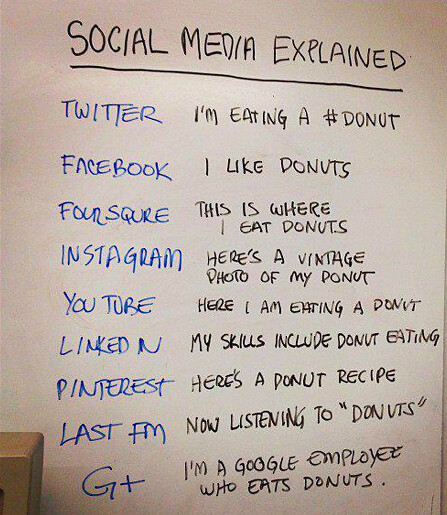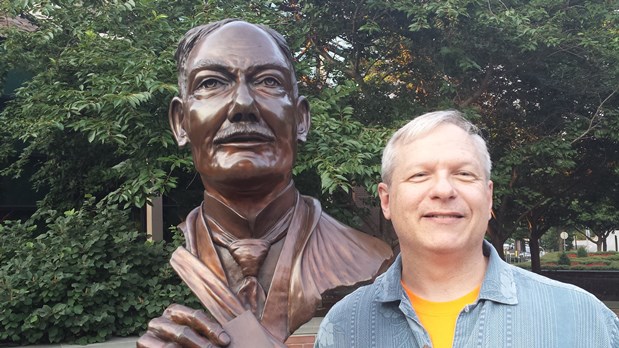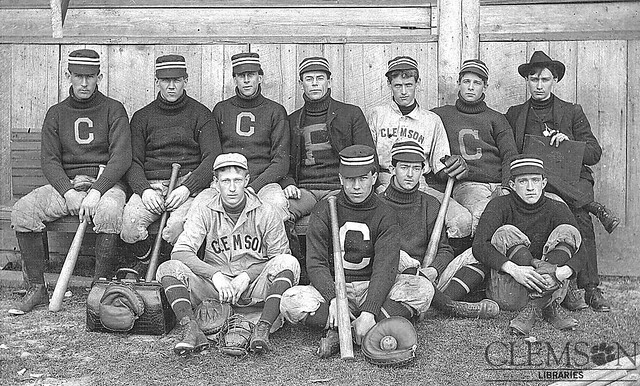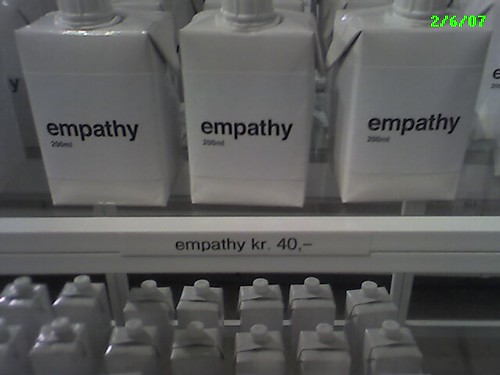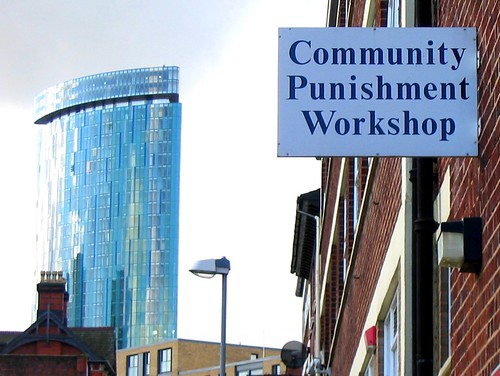It seems we need not bother calling marriage “matrimony” any more, since the institution no longer has much to do with motherhood.

(“0824: matrimony,” by EMILIE RHAUPP, on Flickr under Creative Commons.)
That used to be what the word meant, in one form dating as far back as the Romans. The English word “matrimony” came into use around 1300, and derives from the Old French word “matremoine” which in turn derives from the Latin word for marriage, matrimonium. That word itself combined matrem, meaning “mother,” with monium, meaning a state or condition of being. So the Latin word for wedlock meant, literally, the condition of motherhood.
Motherhood was, thus, an expected outcome of marriage.
For decades the US has gradually dissociated motherhood from marriage, honoring each less and less. Out-of-wedlock motherhood, once considered undesirable enough to be avoided by expedient marriages or other means, tragically including abortion, has become more acceptable — even while the actual work of motherhood has become far less respected. Single motherhood, it sometimes seems, is the only form of motherhood that is widely honored, perhaps because to be a successful single mother requires a heroic level of effort.
(Single motherhood is heroic, but that doesn’t make it preferable to being a mother who is part of a successful marriage. I imagine that many single mothers might prefer to have a partner with whom to share the costs and responsibilities of parenthood, just as many [if not most] people who are thought of as heroes might have preferred never to have been put in the situations which called for heroics in the first place.)
As the link between marriage and motherhood has disintegrated, marriage itself has lost its allure for many people. Adultery and divorce, which like single motherhood used to carry some stigma, seem to have almost become mainstream.
And with “marriages” between homosexuals becoming accepted practice — witness the US Supreme Court’s recent refusal to take up several states’ appeals of judicial decisions reversing voter bans, and the subsequent increased issuance of marriage licenses to homosexual couples — then marriage may have finally been divorced, so to speak, from motherhood. Because who becomes the mother in an ersatz marriage between two men?
(Proponents might say that it matters not, that motherhood and the belief that children benefit from the social cues and male-and-female examples they get in traditional marriages are antiquated notions. Odd that some people who have grown up in same-sex households tell a different story.)
How did we get to this point? Blogger Matt Walsh, on a new platform with an inaugural post entitled There is No Such Thing as Marriage Equality, wrote,
Sometime between the divorce rate skyrocketing and out-of-wedlock births reaching 40 percent nationwide, it became obvious that our society has very little energy for preserving, defending, respecting, or even participating in marriage.
Amid conflicting reports over whether the divorce rate is continuing to rise or has never really approached the 50% figure often reported, sometimes it seems that the only people actively pursuing marriage are homosexual couples. In recent years they have certainly pursued it with vigor, often decrying the unfairness of how well our society treated married couples and ultimately dismissing accommodations society made for their relationships, because those accommodations weren’t sweeping enough and did not cover tax and other property benefits. As James Taranto wrote two years ago,
Gays are interested in marriage for two reasons. The first is because it provides concrete benefits in areas such as health care and inheritance. The second — the reason why they have by and large rejected the compromise of “civil unions” and insist on the word marriage — is because it implies an affirmation that homosexual relationships are morally and socially equal to heterosexual ones.
Walsh, however, argues that the latter can never obtain, and enumerates two key differences that distinguish marriage from the marriage-like arrangements of homosexual couples. First, that “one involves people of the same sex, the other does not.” That difference seems clear enough, and to it Walsh adds that “in one there is never any possibility of procreation, whereas in the other there is.” (I might quibble enough to word that as, “in one there is never any possibility of direct procreation, whereas in the other there is at least the theoretical or implied possibility,” but those distinctions are quite minor.)
After pointing out those quite basic differences, Walsh considers whether they are really that significant:
This is a country where we go out and buy new iPhones because they’re slightly different from the iPhones we bought 14 months ago. We pay for upgraded seats on an airplane because they’re slightly better than the seats three rows back. We cry discrimination and persecution if we find out that our coworker makes slightly more than us, or has a slightly bigger office, or a slightly more comfortable chair. We purchase TVs for a slightly clearer picture. In other words, we find immense, world-shattering connotations in the faintest little cosmetic changes and deviations, yet we struggle to appreciate the difference between heterosexual and homosexual couples; a difference that, if I must remind you, involves the creation of human life.
A man and a woman can get together and make a person. They can, between the two of them, conceive a human child….
Of course, the birth control industry and Planned Parenthood would like for us to see our procreative capacity as some minor and unimpressive little nuisance, but that’s only because they’ve got a product to sell. In reality, we can say what we want about it, but we can’t say that it’s immaterial. A man and a woman can make a baby. This means something. A man and a man cannot. This also means something.
Whatever it means, it means at least that the two relationships differ from one another. They are not equal. One is something, the other is something else. They are not the same. They are not equal.
Some people may appreciate a metaphor for how differences in substance warrant differences in terminology. When tobacco is shredded and rolled into small papers for smoking, we refer to the result as “cigarettes,” but when marijuana is treated likewise we refer to the result as “joints.” (In fact, to call the latter a “marijuana cigarette” is often derided or ridiculed as a mark of cluelessness, even though it seems to be a technically accurate description.) The internal constituents are different, and that difference is significant enough that the latter was given a completely different name. By this metaphor, what we seem to need is a new term for the homosexual version of “marriage.”
It is possible to say that what the courts have done — and it has largely been a judicial effort, because few jurisdictions have voted affirmatively to sanction homosexual “marriage” — is to make homosexual and heterosexual relationships equal under the law, a distinction that, were it to be applied generally to the text of the Declaration of Independence, might lead to a quite different interpretation of that document. In my mind the question then becomes, does society derive enough benefit from that new treatment that it should feel compelled to regard homosexual relationships the same way it regards heterosexual relationships?
I invite anyone who answers “yes” to present their argument in the comments, refraining from canards like “fairness” and presenting clear benefits to society as a whole.
In anticipation of being enlightened, I will present here four separate arguments of why society should be under no such compulsion to accord homosexual relationships the same honor as traditional marriage:
- An argument from history. Did any civilization, at any time before the modern era, sanction legal, permanent homosexual relationships? Commenters are welcome to present examples, but so far as I can ascertain, even in civilizations in which homosexual activity was tolerated (e.g., ancient Persia), “marriage” was still limited to men and women. I understand that even recently some cultures still subscribed, openly or not, to the “women are for children, men are for pleasure” idea, but even there “marriage” was of the traditional kind.
- An argument from the “norm.” In statistics, the “average” or “mean” can also be called the “norm.” Alternately (or perhaps similarly), in sociology, psychology, and education, the “norm” is a usual, expected, or even “average” behavior. Even though homosexual behavior might be “regular” or “routine” for those who practice it, and perhaps even “natural” and “normal” for them in that sense, when we consider sexual preferences on a population basis we must acknowledge that homosexuality is a societal outlier, and unlikely ever to be a societal “norm.” The question then becomes whether societal constructs — especially ones we might consider societal “institutions” — should be built on societal norms. Perhaps a case could be made that such constructs and institutions should be built on other foundations, but the question still remains as to why society should expand the institution, the “norm,” of marriage to include homosexual relationships. (Even if that is a matter upon which reasonable people may disagree, it does not mean accommodation for homosexual unions should be denied; accommodations could even be expanded, and those relationships could be honored in their own way, without according those relationships the status of marriages.)
- An argument from philosophy. Immanuel Kant formulated the idea of the categorical imperative, in which human behavior is held to a standard higher than that of simply achieving certain ends. The imperative holds that we should act in such a way that our actions would become the basis for universal law. Above, we pointed out that homosexuality is unlikely ever to achieve the status of a societal “norm,” and it is difficult to imagine even the most dedicated supporter of marriage between homosexuals suggesting that homosexual behavior should be a categorical imperative, i.e., that homosexuality should become a universal law. To state such a proposition would be tantamount, it seems, to extolling the death of the human race through attrition, because of
- An argument from biology. It seems safe to say (as Walsh did, quoted above) that homosexual coupling cannot produce offspring. It seems equally safe to say that without either engaging in heterosexual sex or enlisting technical assistance, homosexuals cannot produce offspring. This is not to say that homosexuality is automatically anti-evolutionary, because it is possible that a low incidence of homosexuality in a population actually confers some overall evolutionary benefit by reducing the competition for reproducing mates. Even if that is the case, however, homosexual coupling remains a biologically null proposition.
If, then, marriage is still to be considered a societal construct in which children can be born and raised in relative security — i.e., an institution derived from and devoted to “motherhood” — then homosexual “marriage” seems to fail on the “born” criterion. However, if marriage and motherhood are henceforth to be considered separate and unequal, then the question becomes whether any benefits of recognizing same-sex marriages outweigh the risks. And there are risks.
In the wake of the 09/11/01 attack, many on one side of the political aisle asked a form of the question, “Why do they hate us?” and stopped at the easy answer of US military presence in the Persian Gulf region. Fewer are likely to acknowledge that other societies find US cultural exports and societal forays into increasing decadence to be inimical to social order, perhaps because that would require them to take credit for being partly responsible for those societies’ animosity toward us. Are proponents of homosexual “marriage” willing to accept the possibility that widespread acceptance of the practice and legitimizing of homosexual unions may increase, rather than decrease, the animosity that certain societies feel toward the US? This is not, in itself, a reason to withhold approval; however, it should be noted as a risk factor and accepted with open eyes.
A point of clarification. Those who disagree with the arguments above so much that they feel dismay, disgust, or disapprobation may not have made it this far at all; however, it may be important here to note what I am NOT saying. I am NOT saying that homosexuals should stop being homosexual. Be who you are, and be true to yourself. I am NOT saying that homosexuals should be persecuted, vilified, or attacked. No one should seek to do you harm based on your sexual preference or your adult, consensual, sexual practice. I am NOT saying that homosexuals should be prevented or discouraged from forming lifelong committed pair bonds and enjoying personal- and property-related benefits from those relationships. Love whom you will, and love them well.
Back to the topic of marriage, it may be said that the “purpose” of marriage — i.e., the reason marriage became a societal institution bridging time and culture — was to provide for stable family relationships and the orderly transmission of property within a family. If that is the case, then would there be any reason to deny those benefits to families formed by homosexual pairings? Family units based on marriage provided a way that people could understand where (or with whom) they “belonged,” and served as a generally-recognized mechanism by which property could be maintained, improved, and passed on, but other mechanisms such as adoption have also been available to achieve those ends. Recognition of family-based property rights within a community reduced the likelihood (and the fear) that non-family would swoop in after a member died and divide the member’s property, leaving the family out. There seems to be no reason to leave homosexual couples open to such predations. (In some respects, therefore, and perhaps worthy of a separate discussion, “family” may not have to be equated with “marriage.”)
But there is that small matter of the historical link between “marriage” and “motherhood.” If marriage was only a social convention to provide for identification and inheritance, then “motherhood” need not have been its basis. Yet it was.
In the end, our society will choose and in the process will either agree or fragment even more than we already have. Perhaps society has already chosen. As noted in Did The Supreme Court Just Legalize Gay Marriage?, “this legal climate change becomes a kind of fait accompli.”
The road ahead is unlikely to be smooth, however, if Walsh’s prediction comes true:
‘Gay marriage’ and abortion are the holiest liberal sacraments because they alter the nature of life and of the family. If progressives can … remodel the family in service of their political agenda, and if these little fine tunes become accepted and promoted in the mainstream, then their agenda can go anywhere and do anything.
Indeed, re-defining marriage once means that it may continue to be re-defined. It seems all manner of restrictions on marriage could go by the boards and open the marriage relationship to any sort of preferences, if enough people agree that the restrictions are antiquated or violate some supposed rights. If the word loses its meaning, people will be free to define it however they wish.
But, it must be said, words do change meaning. Language evolves, and so does society. We may even think of society itself as evolutionary. Social structures have certainly provided evolutionary benefits, in that they made it more likely for our tribes to survive when the world was young and we were “red in tooth and claw.” Social structures will likely continue to change, and it remains to be seen if various societal mutations will produce the kind of benefits that confer long-term survival advantages; in essence, whether societal evolution — societal “natural selection,” if you will — augurs in our favor.
Society now is under different pressures than society in antiquity. It would seem that our society faces fewer existential pressures than society did in the past, and in response has magnified the perceived pressures — and may, to a certain extent, even have invented imaginary pressures that are pushing it in new, untested directions. So what price are we willing to pay, individually and as a society, to maintain — or to eliminate — historical social institutions, such as “matrimony,” that we have in common?
___
P.S. Another point of clarification. In addition to the things noted above that I am NOT saying in this piece, note I am NOT presenting any arguments based on the Bible, because I do not believe those apply. Why? First, because Scripture is not US law or any local code. Second, because the behavioral injunctions in Scripture are made to particular people — first to the Jews via the Law and the Prophets, and second to Christian believers — and therefore do not constitute requirements for nonbelievers. I am not aware of anything in Scripture that requires a Biblical standard to be applied to nonbelievers; in contrast, it seems to me that only when a person becomes a believer and accepts Scripture as the guide for their life should they be held to the standards it espouses — and even then, with grace.



 by
by 
